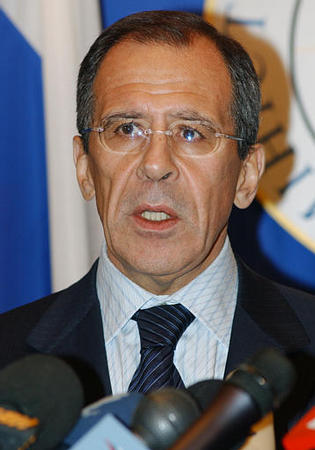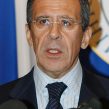
PUTIN OBITUARY FOR CIS
Publication: Eurasia Daily Monitor Volume: 2 Issue: 63
By:

Russian officials are performing some dialectical acrobatics in reinterpreting President Vladimir Putin’s recent remarks in Yerevan, where Putin in essence pronounced the Commonwealth of Independent States to be defunct as a mechanism for integration (Kremlin.ru, March 25).
Russia’s Minister of Foreign Affairs Sergei Lavrov wasted no time making an appearance at the Center for Integration Affairs, affiliated with the Russian Academy of Sciences, for a lecture designed to resuscitate some confidence in the viability of the CIS. When Putin “termed the CIS a mechanism for civilized divorce,” Lavrov argued, the president “did not mean to say that this was the organization’s sole purpose and that there were no other purposes. On the contrary, a ‘civilized divorce’ certainly does not rule out integration; rather, it can help to intensify it.”
“All CIS countries have made mistakes,” Lavrov conceded, before zeroing in on mistakes made outside Russia. Rejecting “the erroneous view in CIS member countries that only Russia is interested in integration,” Lavrov imputed this view to those countries’ “flirtation with the West.” He cautioned post-Soviet countries against pursuing their own way, separately from Russia, in the international system: “We will not achieve a respected place in the emergent new world order as individual countries or by joining individually the international organizations that are beckoning.” Instead, Lavrov held up the Russia-Belarus Union, the Eurasian Economic Community (EurAsEc), and the CIS Collective Security Treaty Organization (CSTO) as “testifying to the necessity of integration.”
Possibly because those three groupings exist mainly on a symbolic level, Lavrov surprisingly suggested using the GUUAM group (Georgia, Ukraine, Uzbekistan, Azerbaijan, Moldova) to promote integration processes among post-Soviet countries. Russia has all along criticized GUUAM for promoting centripetal tendencies, as a counter to the CIS, and indeed the only extant group of CIS countries that does not include Russia. Lavrov’s remarks may presage some overture from Moscow to GUUAM on the occasion of the group’s upcoming summit in Chisinau (Interfax, RIA-Novosti, March 28).
Ministry of Foreign Affairs chief spokesman Alexander Yakovenko similarly hastened to qualify and reinterpret Putin’s pessimistic remarks about the CIS. Writing in the government daily Rossiiskaya gazeta, Yakovenko insists, “The CIS is by no means at the end of its historical life-span. It remains on the whole a necessary organization, notwithstanding the skepticism of some politicians.” From this allusion that many would read as applying to Putin himself, Yakovenko goes on to acknowledge some validity to “expressions of alarm over low efficiency, superfluous structures, and disunity on important issues in the CIS.”
Yakovenko’s remedies seem to involve mainly bureaucratic tinkering and continuing downsizing of the CIS. He calls, Soviet-style, for “improving the quality of work in some areas, raising the responsibility of needed sectoral bodies”; more realistically, for “cutting off the projects that member states do not need”; and finally, for shifting the CIS focus toward “humanitarian cooperation.” The first of those solutions has been proposed without results throughout the organization’s existence. The second remedy, downsizing, has actually proceeded apace in recent years, constantly pruning down the personnel and budget of the plethora of specialized bodies in the CIS.
Finally, “humanitarian cooperation” is Moscow’s recent idea for putting CIS bodies to some tangible use with almost negligible investment. The term encompasses — and politicizes — a wide range of social issues: “rights of Russian-speaking populations” in CIS countries, institutionalized links between those groups and their country of origin, labor migration, social protection. It also underscores promotion of a CIS-wide “cultural space,” “education space,” “information space” — such spaces attempting to preserve a special position for the Russian language and Russian mass media in post-Soviet countries (Interfax, March 29; Rossiiskaya gazeta, March 30).
Also as part of “humanitarian cooperation,” Moscow insists on developing elaborate CIS standards and mandates for CIS election observation and evaluation missions, in opposition to OSCE/Council of Europe standards and assessment missions. This was the focus of the CIS Council of Ministers Foreign Affairs session in Minsk on March 21, which Moscow has pronounced a success. In fact, the session was marked by thin attendance, failure to adopt documents other than by CSTO member countries, and a tendency by most member countries to quietly distance themselves from Russia’s proposals to develop CIS election assessment criteria (Interfax, March 21). At that session, Ukraine officially withdrew from the existing CIS election-observation mechanism, and Moldova incurred Russian criticism for Chisinau’s precedent-breaking refusal to invite Russian-led observers to Moldova’s parliamentary elections just held.




